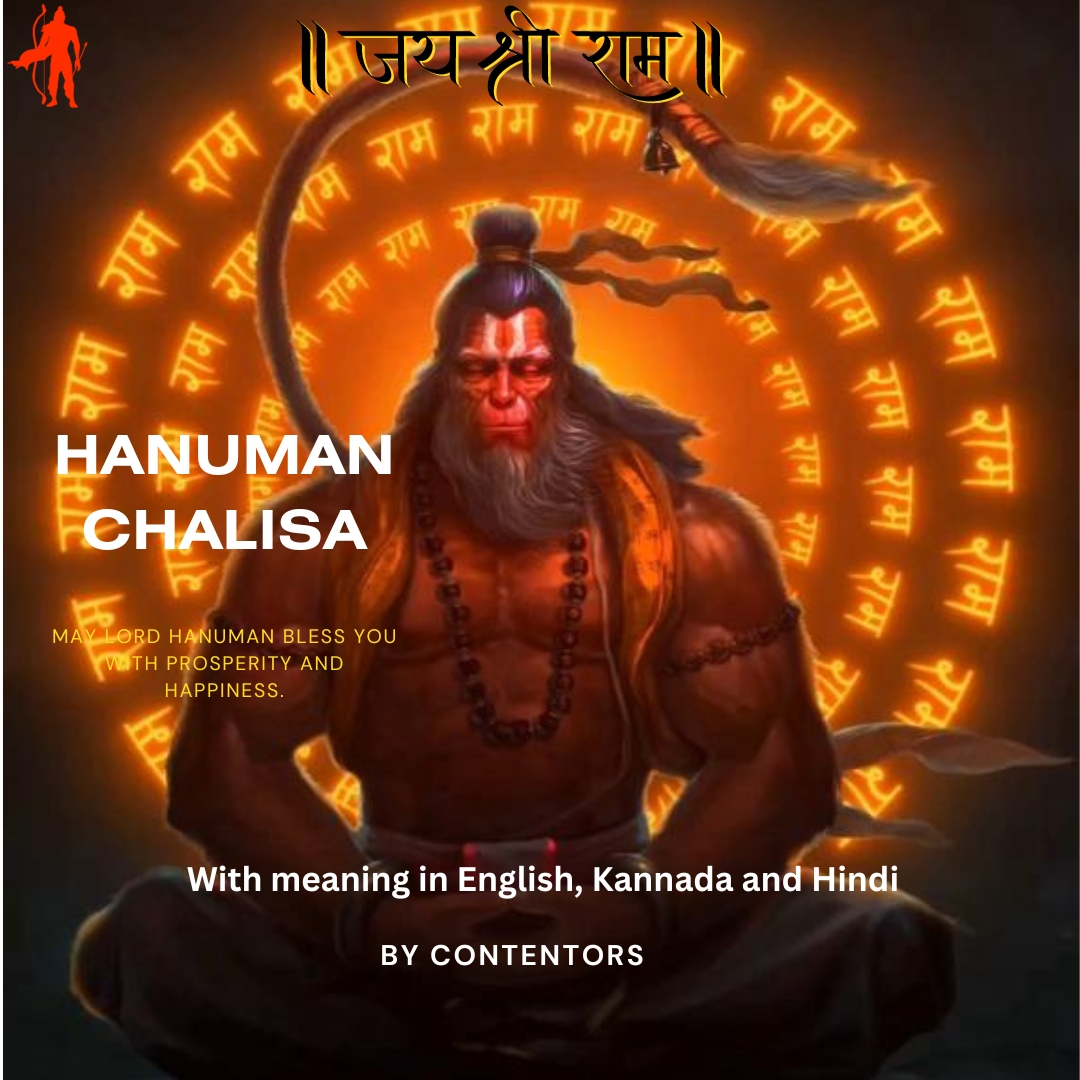The Hanuman Chalisa is a devotional hymn dedicated to Lord Hanuman, a central figure in Hindu mythology and a devoted disciple of Lord Rama. Composed by the sage Tulsidas in the Awadhi language, it consists of 40 verses (chalisa) and is widely recited by Hindus around the world. The Chalisa is a form of prayer and is considered a powerful tool for seeking strength, courage, and devotion.
Meaning and Significance:
- Devotion to Hanuman: The Hanuman Chalisa expresses deep devotion and reverence to Lord Hanuman. It narrates his divine qualities, exploits, and unwavering devotion to Lord Rama.
- Spiritual Benefits: Reciting the Hanuman Chalisa is believed to bring spiritual benefits, including protection from negative influences, blessings for courage and strength, and overall well-being.
- Verses and Structure: Each verse (chaupai) of the Chalisa is packed with symbolic meanings and serves as a reminder of Hanuman’s virtues. The Chalisa is structured in a way that it unfolds the greatness of Hanuman, emphasizing his role in the Ramayana.
- Universal Appeal: The Hanuman Chalisa is not limited by linguistic or cultural boundaries. Its verses resonate with devotees across various backgrounds, making it a unifying force in the worship of Hanuman.
- Devotional Practice: Many individuals recite the Hanuman Chalisa regularly as a devotional practice. It is often recited on Tuesdays and during times of distress to seek Hanuman’s blessings.







Sriram S –
Jai shreeram
Sriram –
Jai shreeram
Sriram S –
Jai hanuman